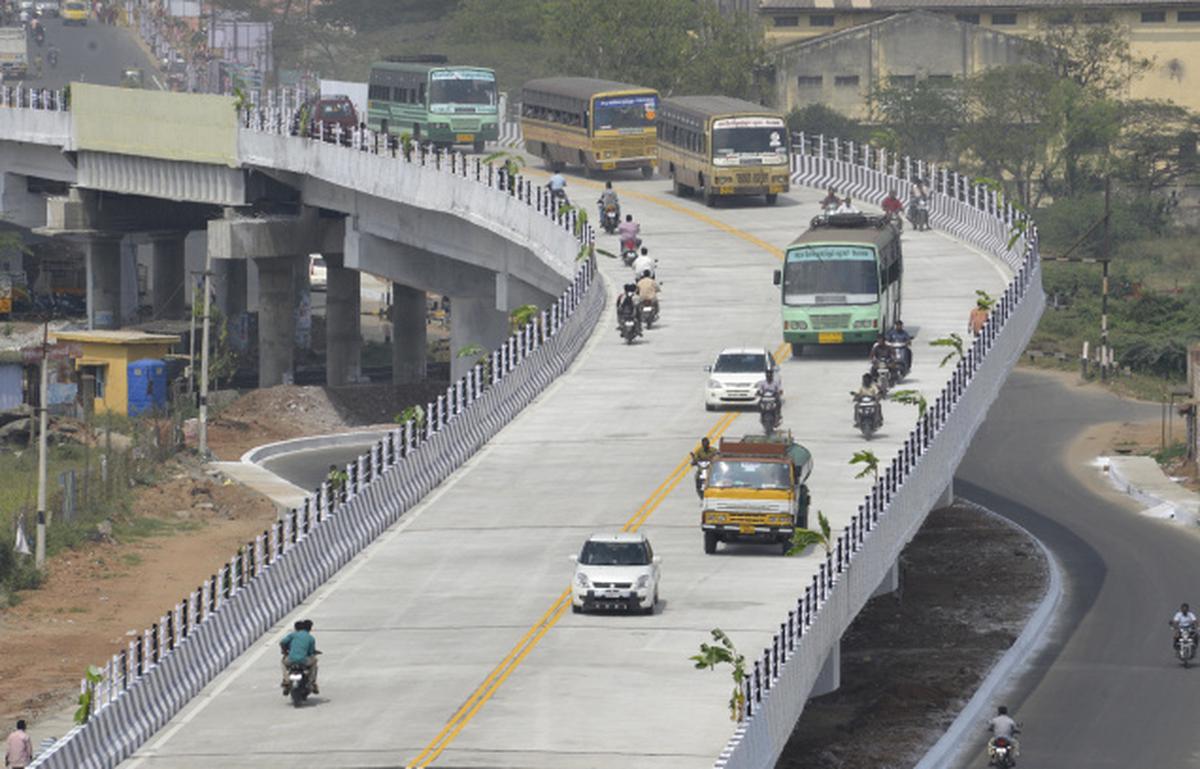In a major boost to Tamil Nadu’s transportation and infrastructure network, new four-lane roads and flyovers constructed at a cumulative cost of ₹499 crore have been formally inaugurated.
The initiative, part of a broader push for inclusive, climate-conscious urban mobility, marks a key milestone in the state’s effort to modernise its transport grid while addressing equitable access across regions. The projects, fully funded by the Highways Department, cover strategic corridors and high-traffic routes across Namakkal, Madurai, and Ranipet districts. Each development reflects a growing emphasis on infrastructure that supports both efficiency and equity, particularly at a time when states are under pressure to build climate-resilient and socially inclusive public assets.
In Namakkal, the vital Malliyakarai-Rasipuram and Tiruchengode-Erode stretch has been expanded into a modern four-lane corridor, costing ₹424.38 crore. This critical upgrade is expected to ease commercial and passenger transit across industrial belts in western Tamil Nadu, improving travel time, reducing vehicular emissions, and enhancing road safety. The route has long demanded decongestion solutions and now stands as an example of well-integrated road engineering. In Madurai district, a newly constructed flyover at Pazhanganatham—commissioned at ₹68.38 crore—has replaced a congested railway level crossing. The new grade separator is projected to significantly improve traffic flow while eliminating delays caused by passing trains, a common complaint among daily commuters and transport operators in the region.
Further north, in Ranipet’s Melpakkam, a resettlement housing project for tribal communities has also been completed. With an allocation of ₹6.32 crore, the development offers secure, dignified shelter to vulnerable populations historically left out of mainstream urban housing policies. This aspect of the initiative reflects the state’s growing commitment to socially equitable development—housing for marginalised groups being foundational to inclusive urbanisation. All three projects were inaugurated via video conferencing from the State Secretariat. Key senior leadership from the Highways and IT departments were present during the launch, marking the event as a significant step in Tamil Nadu’s infrastructure roadmap.
While traditional infrastructure has often focused on economic value alone, the projects unveiled this week also carry social and environmental implications. Enhanced roads and flyovers reduce traffic congestion and fuel consumption, indirectly contributing to reduced carbon emissions. Simultaneously, the inclusion of resettlement housing introduces a human angle to infrastructure investment—bringing development to those who need it most. With Tamil Nadu positioning itself as a forward-thinking state on both urban growth and sustainable governance, the successful rollout of these projects reflects not just administrative efficiency, but a reorientation towards greener, smarter, and more inclusive public works. As the climate crisis looms and cities grow denser, such integrated planning may well define the path for India’s states in the years to come.
Also Read : Mizoram CM Urges Centre to Address Road Durability Issues


